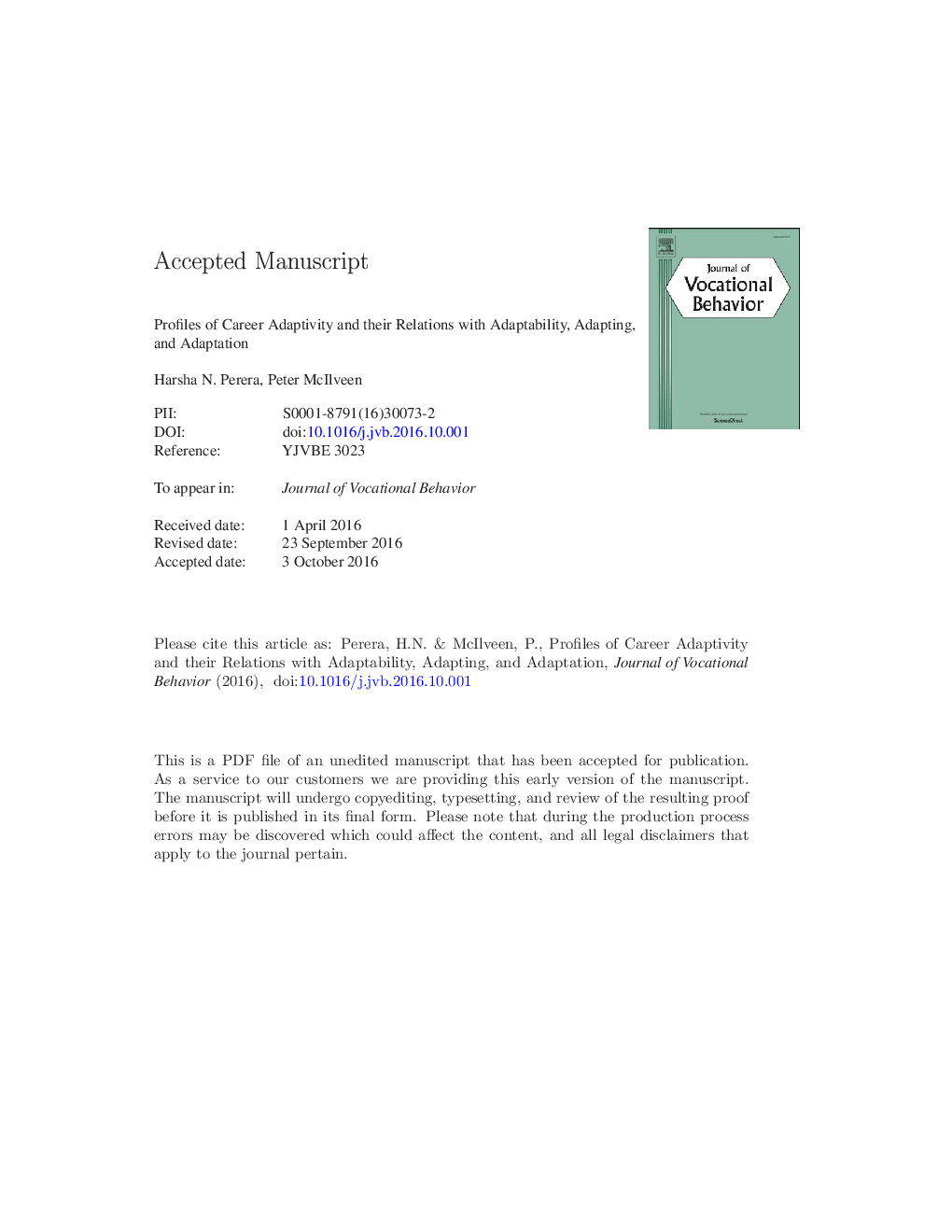ترجمه فارسی عنوان مقاله
مشخصات تطبیقی شغلی و روابط آنها با سازگاری، انطباق و سازگاری
عنوان انگلیسی
Profiles of career adaptivity and their relations with adaptability, adapting, and adaptation
| کد مقاله | سال انتشار | تعداد صفحات مقاله انگلیسی |
|---|---|---|
| 123706 | 2017 | 56 صفحه PDF |
منبع

Publisher : Elsevier - Science Direct (الزویر - ساینس دایرکت)
Journal : Journal of Vocational Behavior, Volume 98, February 2017, Pages 70-84
ترجمه کلمات کلیدی
تجزیه و تحلیل مشخصات خاموش، سازگاری شغلی، سازگاری شغلی، نظریه ساخت و ساز شغلی،
کلمات کلیدی انگلیسی
Latent profile analysis; Career adaptivity; Career adaptability; Career construction theory;

